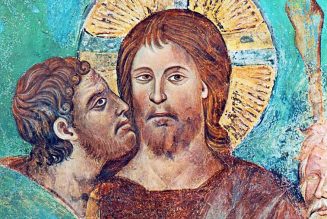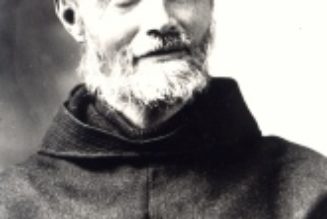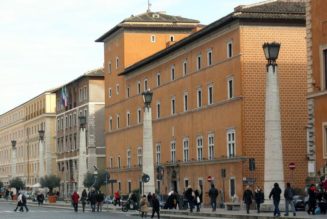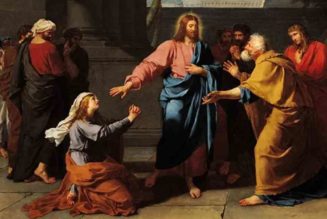
In his second discourse to the Corinthians, St. Paul describes the transformative effect of Jesus’ death: anyone who is in Christ is a new creation where the old has passed away and the new has come.[1] He reminds his fellow disciples that Jesus’ sacrifice comes from the Father who reconciled us to himself through His son.[2] The result of the transformation from the old way of living to the new way in Christ is a reconciliation with God the Father. We are reminded that God made his son to be sin who knew no sin so that in him we might become the righteousness of God.[3]
This brief discourse provides us with a spiritual entryway of sorts into our preparation for the season of Advent first by the anticipation of the coming of the Messiah and second, for the opportunity to renounce and confess our sins. St. Augustine reminds us that whoever confesses his sins is already working with God. . . When you begin to abhor what you have made, it is then that your good works are beginning, since you are accusing yourself of your evil works. The beginning of good works is the confession of evil works. You do the truth and come to the light.[4]
The single most loving act that God did to address humanity’s sin was to become man through His only-begotten son Jesus Christ. In Jesus, we encounter the full effect of God’s love revealed through the scourging, crucifixion, and death of Jesus for the salvation of mankind. St. John reminds us: He so loved the world that he gave his only-begotten son, that whoever believes shall not perish but have eternal life.[5]
The Catechism reminds us: When the Church celebrates the liturgy of Advent each year, she makes present this ancient expectancy of the Messiah, for by sharing in the long preparation for the Savior’s first coming, the faithful renew their ardent desire for his second coming. By celebrating the precursor’s birth and martyrdom, the Church unites herself to his desire: “He must increase, but I must decrease.[6]
If there is a singular word that clearly describes the nature of Advent it is expectancy. If we claim to have a sincere relationship with Jesus Christ, then the season of Advent provides us with an expectancy that Jesus will come, and after death come again. This means that our preparation prior to his coming and his final coming should involve a constant separation from sin. Though Advent signifies our liturgical preparation to anticipate the birth of the Messiah, it also provides us with a foretaste of our preparation for the second coming.
An example of this foretaste is referenced in the Lord’s Prayer where the proclamation “thy kingdom come” refers primarily to the final coming of the reign of God through Christ’s return. But, far from distracting the Church from her mission in this present world, this desire commits her to it all the more strongly.[7] Our preparation for the coming of the Messiah should be met with an expectancy to renounce our sinful ways in order to embrace the birth of the Son of God with joy. We are reminded that the Son of God came to reunite us with the Father, destroy the works of the Devil, establish the Father’s Kingdom on earth, and prepare man for his final destination.
St. Ambrose reminds us that the Lord who has taken away your sin and pardoned your faults also protects you and keeps you from the wiles of your adversary the devil, so that the enemy, who is accustomed to leading into sin, may not surprise you. One who entrusts himself to God does not dread the devil. If God is for us, who is against us?[8] In conclusion, the following prayer of deliverance from the first Epistle of St. John provides us with the opportunity to prepare ourselves for the expectant coming of the Messiah;
Little children; let no one deceive you. He who does right is righteous as he is righteous. He who commits sin is of the devil; for the devil has sinned from the beginning. The reason the Son of God appeared was to destroy the works of the devil. Any one born of God does not commit sin; for God’s seed abides in him, and he cannot sin because he is born of God.[9]








